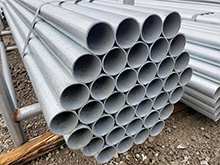
HDPE Pipe
Features:
PE pipe for Gas Supply: Norminal OD (mm): 20-630; Minimum wallthickness: SDR11, SDR17, SDR17.6;
PE pipe for Water Supply: Norminal OD (mm): 20-1200; Minimum wallthickness: SDR9, SDR11, SDR13.6, SDR17, SDR21 ;
Chemical resistant: HDPE is chemical resistant and is commonly used in many applications such as potable water supply pipes, drainage and sewerage pipes, electrical conduits, mining pipes and many more.
Strong and durable: HDPE pipes are strong, durable and can withstand high pressures.
We're here to help:
Easy ways to get the answers you need.
Parameter:
WESDOM Advantages
1.WESDOM patent products, patent certification
The product side flanges comply with national, German, Russian, American, British and Japanese standards and other domestic and international standards for multiple pressures, easy connection and wide adaptability, which can reduce the type of purchase and stock.
2.The product has an independent identity to ensure traceability
Each wesdom product has its own unique identification number, to ensure product traceability.
3.Provide material inspection report
All wesdom products can provide the material inspection report of the main parts.
4.One-stop service
One-stop service, we not only supply high quality products, also supply solutions and after-sales service.
5.WESDOM has a lot of project experience
We have a lot of project experience in countries such as Pakistan and the Philippines, WESDOM has always been noticed all over the world, and trust comes from quality.
6. WESDOM has a strict quality control system
WESDOM has a strict quality control system and before delivery, we test 100% of each product to ensure its quality, promising you a high quality product.
Quality Control Process
Standards&Features:
Case:
Application:
Please fill in your procurement needs and contact information












